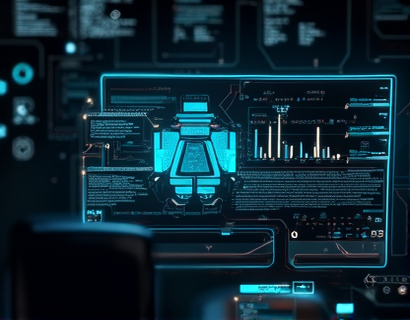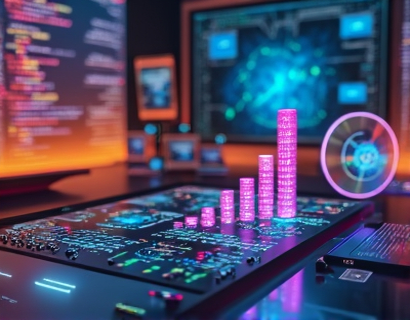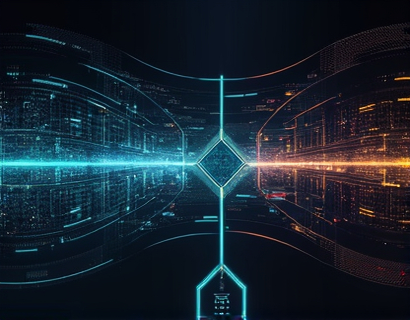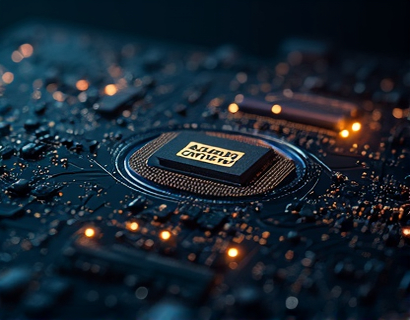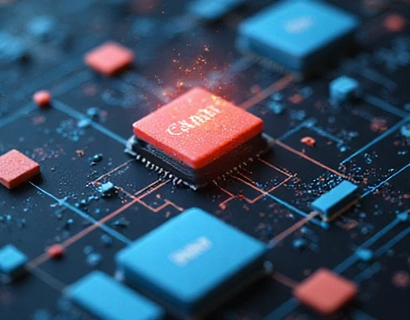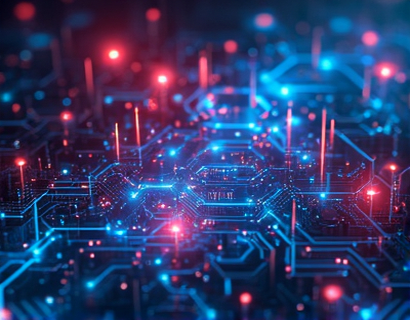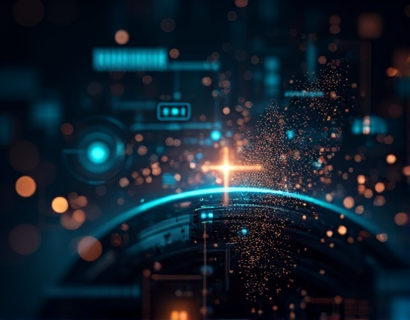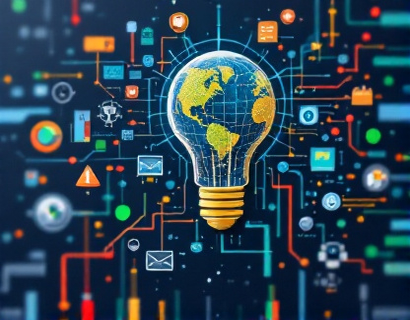Decentralized Productivity: Harnessing AI and Crypto for Next-Gen Workflow Innovation
The intersection of cryptocurrency and artificial intelligence (AI) is giving rise to a new era of productivity tools that promise to redefine how we work and collaborate. This article explores the transformative blend of these technologies, focusing on how they can be harnessed to create advanced decentralized applications that enhance efficiency, security, and innovation in digital workflows.
In recent years, the tech landscape has seen a significant shift towards decentralization, driven by blockchain technology and cryptocurrencies. These innovations have not only transformed financial systems but are now extending their influence to various sectors, including productivity and workflow management. By integrating AI with decentralized systems, we can unlock new potentials for automation, data security, and user-centric design, leading to more robust and efficient digital tools.
Understanding Decentralized Productivity
Decentralized productivity refers to the use of decentralized technologies to create and manage digital workflows. Unlike traditional centralized systems where data and processes are controlled by a single entity, decentralized systems distribute control across a network of nodes. This approach offers several advantages, including enhanced security, transparency, and resilience against failures.
The core principle behind decentralized systems is the blockchain, a distributed ledger technology that records transactions across multiple computers in a way that is secure, transparent, and immutable. By leveraging blockchain, decentralized productivity tools can ensure that data is tamper-proof and accessible only to authorized users, thereby enhancing trust and collaboration among team members.
AI in Decentralized Workflows
AI plays a crucial role in enhancing the capabilities of decentralized productivity tools. Machine learning algorithms can analyze vast amounts of data to identify patterns, predict trends, and automate repetitive tasks. In a decentralized context, AI can be deployed to manage and optimize workflows, providing insights and recommendations to users based on real-time data.
For instance, AI-powered chatbots can facilitate seamless communication within decentralized teams, handling scheduling, task assignment, and document sharing. These chatbots can operate independently, adapting to the specific needs and preferences of each team member, thus improving overall efficiency and reducing the burden on human coordinators.
Enhanced Security and Privacy
One of the most significant benefits of combining AI and decentralization is the enhanced security and privacy it offers. Traditional centralized systems are vulnerable to hacking and data breaches, as they rely on a single point of control. In contrast, decentralized systems distribute data across a network, making it much harder for malicious actors to compromise the entire system.
Blockchain's cryptographic techniques ensure that data is encrypted and can only be accessed by authorized parties. AI can further bolster security by detecting and mitigating potential threats in real-time. For example, AI algorithms can monitor network activity for unusual patterns that may indicate a security breach, triggering automated responses to safeguard the system.
Decentralized Identity Management
Identity management is a critical aspect of any productivity ecosystem. Decentralized identity solutions, powered by blockchain and AI, offer a more secure and user-controlled approach to managing digital identities. Unlike traditional identity systems where personal data is stored centrally, decentralized identity management allows users to own and control their digital identities.
AI can enhance this process by creating secure and unique identifiers for each user, ensuring that their identity is verifiable and tamper-proof. This not only protects user data but also simplifies the authentication process, making it faster and more convenient. Users can grant or revoke access to their data and applications with granular control, enhancing both security and privacy.
Automated Workflow Orchestration
Automation is a key driver of productivity gains in any workflow. Decentralized productivity tools leverage AI to orchestrate complex workflows automatically, reducing the need for manual intervention. AI algorithms can analyze workflow patterns, identify bottlenecks, and optimize processes in real-time, ensuring that tasks are completed efficiently and effectively.
For example, AI can automate the approval processes in project management by analyzing historical data to determine the most efficient approval paths. It can also predict potential delays and suggest proactive measures to keep projects on track. This level of automation not only saves time but also reduces human error, leading to higher quality outcomes.
Collaboration and Knowledge Sharing
Collaboration is essential in modern work environments, and decentralized productivity tools are designed to facilitate seamless collaboration among distributed teams. AI-driven platforms can analyze communication patterns and suggest optimal collaboration strategies, ensuring that team members work together efficiently.
Decentralized platforms can also enhance knowledge sharing by creating a transparent and accessible repository of information. AI can curate and organize content, making it easier for team members to find relevant resources and insights. This not only fosters a culture of knowledge sharing but also ensures that valuable information is not lost or siloed within individual departments.
Tokenization and Incentivization
Tokenization, a key feature of blockchain technology, can be used to incentivize participation and reward contributions in decentralized productivity ecosystems. By issuing tokens that represent value within the system, platforms can motivate users to engage actively and contribute to the community.
AI can optimize token distribution by analyzing user behavior and identifying high-value contributions. This ensures that tokens are awarded fairly and effectively, fostering a positive and productive community. Additionally, tokens can be used to purchase premium services or access exclusive features, providing a tangible benefit to users who contribute to the ecosystem.
Case Studies and Real-World Applications
Several projects and platforms are already leveraging the combination of AI and decentralization to create innovative productivity solutions. One notable example is a decentralized project management tool that uses AI to automate task assignment and workflow optimization. This tool has been adopted by multiple organizations, resulting in significant productivity gains and improved team collaboration.
Another example is a decentralized knowledge management platform that uses AI to curate and share expertise across a global network of professionals. The platform has become a valuable resource for organizations looking to tap into a diverse pool of knowledge and skills, without the need for centralized control.
Challenges and Considerations
While the potential of decentralized productivity tools powered by AI is immense, there are several challenges and considerations that need to be addressed. One of the primary challenges is the technical complexity involved in building and maintaining decentralized systems. Developers must have a deep understanding of blockchain and AI to create robust and scalable solutions.
Another consideration is the regulatory landscape, as the use of cryptocurrencies and decentralized technologies is still evolving. Compliance with local and international regulations is crucial to ensure that these tools can be adopted widely. Additionally, user education is essential, as many professionals may be unfamiliar with decentralized technologies and their benefits.
Future Prospects
The future of decentralized productivity is bright, with ongoing advancements in AI and blockchain technology paving the way for even more innovative solutions. As more organizations recognize the value of decentralized workflows, we can expect to see a surge in the development of AI-powered tools that enhance collaboration, security, and efficiency.
The integration of other emerging technologies, such as the Internet of Things (IoT) and quantum computing, could further expand the capabilities of decentralized productivity tools. The potential for creating smart, autonomous work environments that adapt to the needs of users in real-time is immense, promising to transform the way we work and collaborate in the digital age.
In conclusion, the fusion of AI and decentralization offers a powerful framework for revolutionizing productivity and workflow management. By leveraging the strengths of both technologies, we can create decentralized applications that are secure, efficient, and user-centric, unlocking new potentials for innovation and growth in the digital landscape.



